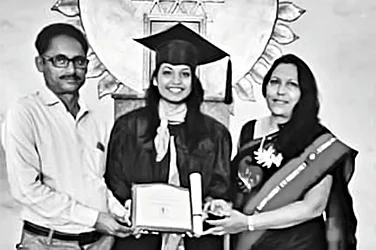Chief Justice of India D Y Chandrachud on Saturday said no case is small or big for any court in the country, be it the district judiciary, the High Court or the Supreme Court.
The CJI's reiteration came while asserting that the confidence of citizens in the due process of law and the protection of liberty rests in the judiciary. "Trust us to be guardians of the liberties of our citizens."
The observation also came days after Law Minister Kiren Rijiju said the Supreme Court should not be hearing "bail applications and frivolous PILs" when the pendency of cases is too high.
Delivering the Ashok H Desai memorial lecture, the CJI emphasized that through the lives of the members of the bar, who fearlessly espouse those causes, “the flame of liberty burns bright even today”.
There is no case which is “small enough or big enough” for any court in the nation, be it the district judiciary, the High Court, or the Supreme Court, "because it is in us that the confidence of the citizens, in the due process of law and the protection of liberty, rests," he said. The event was organised by the Bombay Bar Association.
During the course of the lecture, the CJI also referred to a theft case in Uttar Pradesh where a man would have spent 18 years in jail had the SC not intervened to say "trust us to be guardians of the liberties of our citizens".
“Yesterday in a seemingly innocuous case, where an accused was sentenced to two years of imprisonment in sessions trial for theft of electricity, the trial judge forgot to say that the sentences will run concurrently.
"So then the consequence was that this person who had stolen electricity equipment like poles would have to suffer 18 years of imprisonment, only because the trial court didn't direct that the sentences would run concurrently,” the CJI said.
A bench led by CJI Chandrachud on Friday dealt with a plea of a man from Uttar Pradesh called Iqram who was to suffer a jail term of 18 years in nine minor cases of theft of electrical equipment of the state electricity department.
The top court set aside an Allahabad High Court order and directed that Iqram's jail term of two years each in nine cases would run concurrently instead of successively. It was irked that neither the trial court nor the high court took note of the “miscarriage of justice” and set things right.
Referring to the case, the CJI on Saturday noted that the high court had said, “sorry we can't do anything at all, because the trial judge hasn't, in terms of section 427 of the CrPc directive, said that the sentences would run concurrently”.
“We had to intervene yesterday, in a seemingly innocuous case of a simple citizen of the nation. The point which we make is sermonising apart, trust us to be guardians of the liberties of our citizens,” he added.
Talking about the subject of the lecture, the CJI said it is true that both law and morality play a vital role in channelling our behaviour.
“As all of you might well be aware, the law is a definite body of rules enacted and enforced by the state. The legal rules regulate human conduct by written rules, penalties and officials to interpret the laws."
The CJI added that while law regulates external relations, morality governs our inner lives and motivations and “morality, in that sense, appeals to our conscience and influences the way we behave”.


























